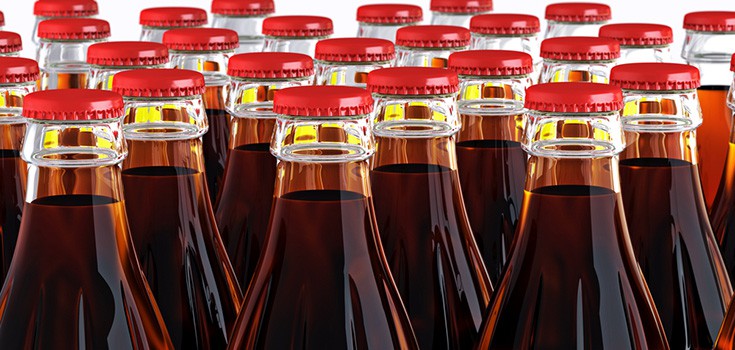Coca-Cola Company Teaches Dietitians Education Courses?

No one wants lessons in lung health from Marlboro, dieting advice from an overweight individual, or financial advice from Hostess. So, why are registered dietitians being given formal education courses by the Coca-Cola Company?
The American Dietetic Association’s credentialing branch, the Commission on Dietetic Registration (CDR) has previously approved a program covering the “urban myths” surrounding the safety of food ingredients. The Coca-Cola Company Beverage Institute for Health and Wellness has employed Dr. Ronald Kleinman—physician-in-chief of Massachusetts General Hospital for Children, chief of the Pediatric Gastrointestinal and Nutrition Unit, and Associate Professor of Pediatric at Harvard Medical School—to present one particular gem regarding fluoride, sugar, artificial colors, and nonnutritive sweeteners.
The program, “Children’s Dietary Recommendations: When Urban Myths, Opinions, Parental Perceptions & Evidence Collide,” aims to show registered dietitians that the ingredients regularly found in Coca-Cola products (and not just their sodas) have been “carefully examined for their effects on children’s health, growth, and development.”
The Industry Slant on Public Health
Had the Coca-Cola company indeed scrutinized their ingredients’ effects on consumers, they might have found that sugar and artificial sweeteners cause inflammation in the body and therefore contribute to a vast array of illnesses, and fluoride not only damages the kidneys but also affects memory and brain health. Additionally, the European Union is working to end the use of artificial dyes for fear of its link to hyperactivity in children, cancer in animal studies, and allergic reactions.
What Coca-Cola has found, however, is that the “majority of studies so far have not found a link between sugar and behavior in children generally or children diagnosed with attention hyperactivity disorder.” The aim of the course, then, is to teach dietitians how to subdue “concern among parents about their children’s health.” (So they can drink more Coke, one imagines.)
Corruption from the Ground Up
Even giving Coca-Cola the benefit of a doubt that its products do not contain ludicrous amounts of sugar made from genetically modified corn and does not contribute to coronary heart disease and pancreatic cancer, the company seems hardly one of high ethical standards. Their leadership in strangling people from the United States to India of fresh water sources, profiteering off of a human right and a plastic bottle made of petroleum that goes un-recycled, erodes any illusion of virtuous intent. And let’s not even get started in their murderous history against unions in Colombia.
The ADA is mired with fiscal ties to soda and junk food industries like Coca-Cola, and even the ethics of Dr. Kleinman must be brought under scrutiny. Like many seasoned researchers, he’s received considerable funds from industry giants, like Mead Johnson and Nestle Ltd, which produce artificial infant formula. Perhaps these industries provided Dr. Kleinman with necessary tools to conduct experiments and research, but then why did he contribute to “Variety’s Mountain,” a brochure for children produced by the Sugar Association?
This path to a single credentialing agency—run not by both nutritionists and dietitians, who have significantly varying views and philosophies, but only dietitians—presents a greater problem with far-reaching implications. This “one-size-fits-all” approach is already wrapped around industry’s finger, and when state boards accept it, the ADA inherits a federal monopoly over nutritional therapy. PhD-trained nutritionists who don’t enter this ADA gauntlet of corruption should be allowed to practice nutritional counseling and provide alternative therapies to simply drinking more Coke.

Thanks for the link here back to my article "Integrity in Science" – Who's Paying the Piper?" on THE ETHICAL NAG: MARKETING ETHICS FOR THE EASILY SWAYED.
Your readers might also be interested in reading "Sugar Is Good For You! – And For the People Who Sell Sugar" at http://ethicalnag.org/2010/10/11/sugar-is-good/
It's like Pedigree(d) and Science Death (Diet) teaching nutrition to vets. They have their own interests in mind not what is actually a benefit to the consumer.
No surprises here. Monsanto has a 'free' books given to schools to help teacher teach kids about the wonderful benefits of GMOs. This is for real folks.
I would like to re-post these articles on my Facebook newsfeed like I used to be able to do. Why can't I re-post them anymore? This is important information that people need to know about.
This is a good program coming from them. This way, consumers are able now to know how they can manage their health while consuming these goods.